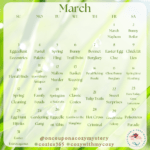Want to chat with Lou?
This is not the same as Lou’s Clues, her mailing list, which requires a separate subscription.
By submitting your details, you’re confirming we may email you. You can unsubscribe at any time.
Please see our privacy policy which explains how we look after your data.
Is Reading Good for You? 11 Health Benefits Explored
I’ve never needed an excuse to read a wonderful book. It’s part of everyday life and always has been. There’s always a book, print or electronic, waiting for me at the end of every day, and in between, when time allows. However, what I wanted to discover was is reading good for you?
I wondered if there had been any studies surrounding the specific health benefits or otherwise of enjoying the written word. I discovered that there are many physical and mental health benefits of reading, all of which are significant.
So what are they? Here are 11 reasons reading is good for your health.
1: Improved memory and concentration

The brain processes involved in following a plot or chain of ideas require concentration and the ability to recall and store information (memory). It is no surprise, therefore, that regular reading and practicing those skills, improves them in the long-term.
2: Increased empathy
Reading stories that involve inner feelings and relationships allows the brain to develop a deeper understanding of human interactions. This skill is then transferable to real-life situations.
Research shows that long-term readers of fiction have developed an advanced set of skills essential for understanding, creating and managing social relationships. Developing these relationships reduces feelings of isolation, which is essential for long-term health.
3. Builds vocabulary and improves life chances
Books expose a reader to new words learned in context. Building a vocabulary happens exponentially through reading new books. Many studies have shown that the extent of a person’s vocabulary has a direct effect on life and career prospects.
4: Builds strong familial connections
It is a widely accepted fact that carers should read to children, starting with them as babies. Listening to an adult reading not only provides children with the building blocks of language and the close physical contact when sharing a book forms strong bonds. They will remember these joyful experiences for a lifetime.
5: Excellent preparation for sleep

We are living in a digital age, a time of sleep deprivation with somewhere between 20-40% of the general population affected. Our bodies respond to daily rhythms of light and dark, and adopting a sleep routine is beneficial to establish these rhythms. Reading as part of that routine relaxes the body and mind and can serve as a signal to the brain that it’s time to sleep.
Medical experts associate repeated short sleep duration with obesity, type 2 diabetes, cognitive impairment and cardiovascular disease, all of which shorten life expectancy.
Word to the wise: do not read on a screen at bedtime!
6: Reduces stress
Losing yourself in a book, heading off to an imaginary world and leaving the actual world with all its problems behind, is the perfect antidote to stress. And it’s not just in my head!
Studies which compared 30 mins of reading to other activities such as yoga, listening to music, walking and exposure to humour found that reading had at least as much of an impact on lowering blood pressure and heart rate.
7: Treatment for depression
Escaping temporarily into a new world in a book of fiction is an excellent way to reduce stress and can also reduce feelings of isolation that depression often provokes.
In addition, nonfiction self-help books can teach strategies to manage symptoms and take control. Check out ‘Reading Well’, where medical experts recommend self-help books specifically for certain mental-health conditions.
8: Strengthens and builds new brain connections
Studies have shown that reading strengthens connections between brain cells and across different regions of the brain. Not only are existing connections strengthened, but we also make new connections and this continues as reading ability matures.
Historically, scientists believed that the brain of an adult was incapable of change/adaptation, but more recent research has shown this not to be the case. In particular, with the development of MRI brain scans, scientists can visibly see brain connectivity increasing throughout a period of reading and for days afterward. This is really important in an aging population and the fight against dementia.
9: Reduces age-related mental decline.

Inevitably, as we age, our body and brain both slow down. In relation to our brain, tasks involving memory, planning and concentration can become more difficult. Hopefully, I’m not the only one who searches the house for something and then can’t remember what it was. 🤦♀️
However, because reading strengthens and creates brain connections, it can help slow down or even prevent cognitive decline.
10: A protective factor against dementia
In 2013, a study found that reading and other mentally stimulating activities may slow dementia.
Studies of readers’ brains after death showed less evidence of the physical markers for dementia e.g., plaques and lesions. This supports the idea that the additional brain connections formed by reading are enough to combat/delay the effects of this terrible disease.
11: Correlates to an overall healthy lifestyle and living longer
A 12 year health and retirement study of over 3,500 participants found that those who read books survived around 2 years longer than those who either didn’t read or who read other media forms such as newspapers and magazines..
It also showed that people who read over 3 1/2 hours every week were 23 percent likely to live longer than those who didn’t read at all.
Final thoughts…
Reading longer texts, particularly books, correlates to better life prospects, reduced stress, reduction in age related mental decline and a longer lifespan. Make reading for 30 minutes or more a part of your everyday routine.
So the next time someone asks why you’re always reading, you can put them straight!
If you have any thoughts, comments or questions let me know. If you enjoyed this article, please share with friends.
Sources
If you want to take a deeper look at the studies referred to in this article, here are the links to do just that:-
THE SURVIVAL ADVANTAGE OF READING BOOKS
Reading skill and structural brain development
Relationship between intelligence and vocabulary
Reading Literary Fiction Improves Theory of Mind
Sleep tips: 6 steps to better sleep
Review Fiction: Simulation of Social Worlds
Self-help books to support mental health | Mental health | Reading Well booklists | Books
Welcome to the Health and Retirement Study
Life-span cognitive activity, neuropathologic burden, and cognitive aging
- Parenthood: Embracing the Messy Reality with a New Magazine!Hey there, fellow parents and grandparents! Have you heard the buzz about the brand-new I’m Going to Count to Five Parenting Magazine? It’s only been out for a week, but it’s already causing a stir among folks navigating the wild ride of raising kids.Now, as someone who’s been around the parenting block a few times,… Read more: Parenthood: Embracing the Messy Reality with a New Magazine!
- Social Media Prompts for March: Your Cozy Content Hatched!
 Hello, cozy connoisseurs! Can you believe it’s March already? With Easter just around the corner, I’m egg-cited to introduce the eggstra-special social media prompts for this month’s #Cozies365 challenge as featured by Once Upon a Cozy Mystery, your new fave cozy lovers’ subscription box! 🥚🕵️♀️ 📖 From egg hunts to cozy mysteries, the prompts are… Read more: Social Media Prompts for March: Your Cozy Content Hatched!
Hello, cozy connoisseurs! Can you believe it’s March already? With Easter just around the corner, I’m egg-cited to introduce the eggstra-special social media prompts for this month’s #Cozies365 challenge as featured by Once Upon a Cozy Mystery, your new fave cozy lovers’ subscription box! 🥚🕵️♀️ 📖 From egg hunts to cozy mysteries, the prompts are… Read more: Social Media Prompts for March: Your Cozy Content Hatched! - Valentine’s Pancake Recipe For Your Cozy Kitchen Today
 Valentine’s Day may have passed, but the spirit of love and warmth lingers on, especially in our cozy kitchen! Here’s a Valentine’s pancake recipe perfect for any day of the year. At the Cocktail & Cozy Club, we believe in celebrating cozy treats every day, and what better way to do so than with a… Read more: Valentine’s Pancake Recipe For Your Cozy Kitchen Today
Valentine’s Day may have passed, but the spirit of love and warmth lingers on, especially in our cozy kitchen! Here’s a Valentine’s pancake recipe perfect for any day of the year. At the Cocktail & Cozy Club, we believe in celebrating cozy treats every day, and what better way to do so than with a… Read more: Valentine’s Pancake Recipe For Your Cozy Kitchen Today - Escape the Grind with Your New Favourite Book Box!
 I’ve got some thrilling news to share that goes beyond the pages of our beloved cozy mysteries! Did you know that I’m also the CEO of the Once Upon a Cozy Mystery Subscription Box? 📦✨ If you’re looking to escape the grind with a curated selection of cozy mysteries and exclusive story gifts, this is… Read more: Escape the Grind with Your New Favourite Book Box!
I’ve got some thrilling news to share that goes beyond the pages of our beloved cozy mysteries! Did you know that I’m also the CEO of the Once Upon a Cozy Mystery Subscription Box? 📦✨ If you’re looking to escape the grind with a curated selection of cozy mysteries and exclusive story gifts, this is… Read more: Escape the Grind with Your New Favourite Book Box! - Unlock Your Creativity: Dive into the World of Bookish Colouring!
 Unlock Your Creativity with Bookish Colouring: As we continue on a cozy journey through the realms of imagination, I’m thrilled to present you with a delightful treat—an exclusive Bookshelf Colouring Sheet to unlock your creativity. It’s yours to download, print, and bring to life with your favourite hues! 🎨📚 [Download Your Bookshelf Colouring Sheet Here]… Read more: Unlock Your Creativity: Dive into the World of Bookish Colouring!
Unlock Your Creativity with Bookish Colouring: As we continue on a cozy journey through the realms of imagination, I’m thrilled to present you with a delightful treat—an exclusive Bookshelf Colouring Sheet to unlock your creativity. It’s yours to download, print, and bring to life with your favourite hues! 🎨📚 [Download Your Bookshelf Colouring Sheet Here]… Read more: Unlock Your Creativity: Dive into the World of Bookish Colouring!

